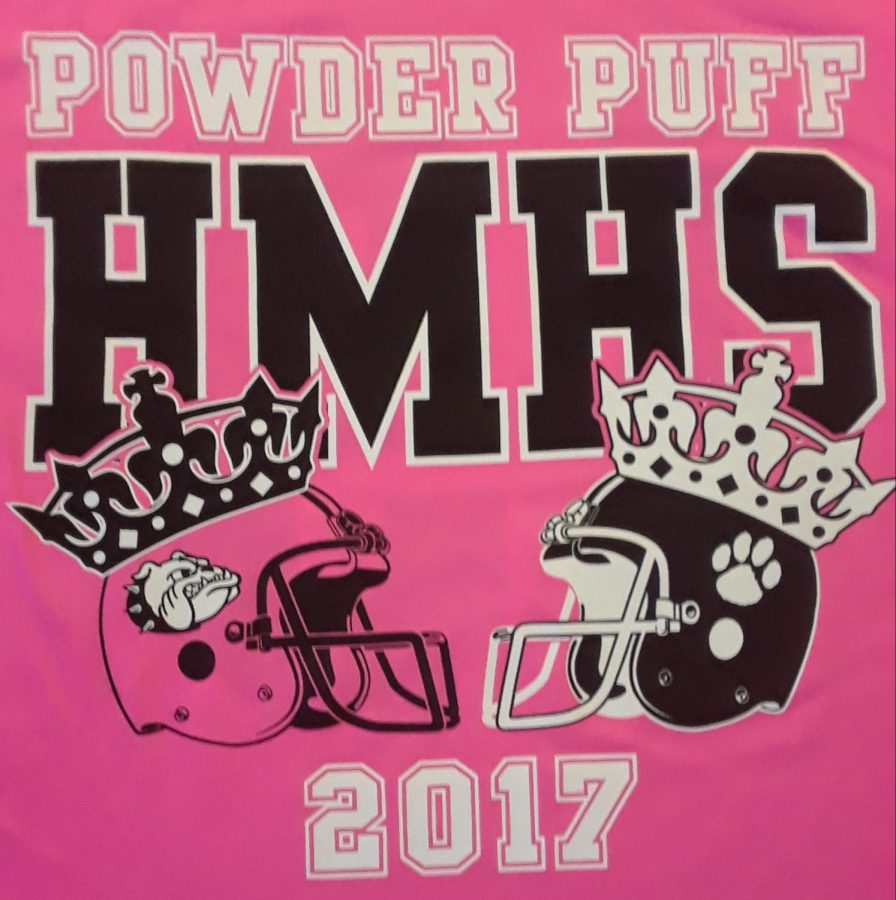Do Traditions Like “Powder Puff” Prevent Progress?
How “Powder Puff” Football Games Perpetuate Stereotypes about Femininity
November 27, 2017
From the cultural appropriation of team mascots to the heteronormativity of prom kings and queens, dozens of high school traditions have been called into question in recent years. In Holbrook, the most pressing of these may be the problematic messaging of powder puff football games.
On November 20th, several girls from the freshman, sophomore, junior, and senior classes took part in a powder puff tournament. While most schools reserve this event for the junior and senior classes, Holbrook’s underclassmen held their own game at the same time. The winners of each game, ultimately the sophomore and junior classes, ended up playing each other in a championship game.
The response from the event has been mostly positive. Freshman, Jessica West, described the game as “very intense,” saying that even though her class lost, everyone had a good time. For many, this was a great opportunity for the classes to bond and embrace school spirit. While this was Holbrook’s first game in years, powder puff is considered a rite of passage in some districts. People try not to overthink it. The event is simply seen as an exciting way for girls in high school to compete with their peers.
Other towns, on the other hand, have canceled the games outright – deeming them “sexist” and “dangerous.” Newton South High School hasn’t held a powder puff game since 2013, when their school’s principal called attention to the message that it sends. In a letter canceling the game, Principal Joel Stembridge wrote that powder puff “inadvertently serves to mock the hard-fought struggles of female athletes… [and] perpetuates negative stereotypes about femininity.”
Students at Wayland High School have not called to end this tradition, but to reform it. When she was a senior, Alex Erdekian proposed changing the name of the event. The term “powder puff” comes from a makeup applicator that women used at the beginning of the 20th century. Erdekian believed that just calling the game flag football “would label the sport as what it is without minimizing its dangers or degrading women.”
In Holbrook, not everyone shares this opinion. Madi Keegan, a junior, enjoyed being a part of the powder puff game last month. She says, “I don’t think it’s sexist because girls aren’t going to play tackle football with boys. Girls physically aren’t as strong boys, and that’s just something that people have to accept.”
While co-ed football teams might not necessarily be an option, this doesn’t resolve the issue of these games being so magnified. Why does there need to be a school-wide event for girls to play football? Why do powder puff games represent school spirit rather than athleticism?
Thomas Denny, a junior, believes that powder puff effectively mocks girls for playing football. He adds, “It’s just one of those things that’s such a casual perpetuation of gender stereotypes that it often goes unnoticed.”
In actuality, that’s the point of calling attention to things like this. It’s not to ruin an event that people enjoy, but to notice the things that go unnoticed. It’s important to realize how easily subtle messaging can impact people’s lives. How does the language we use affect people? What message are we sending by holding on to these outdated traditions? Maybe the answer isn’t to cancel powder puff, but to adapt it. Time goes on, and we cannot stay stuck in the past. As our society continues to grow, so should our traditions.



